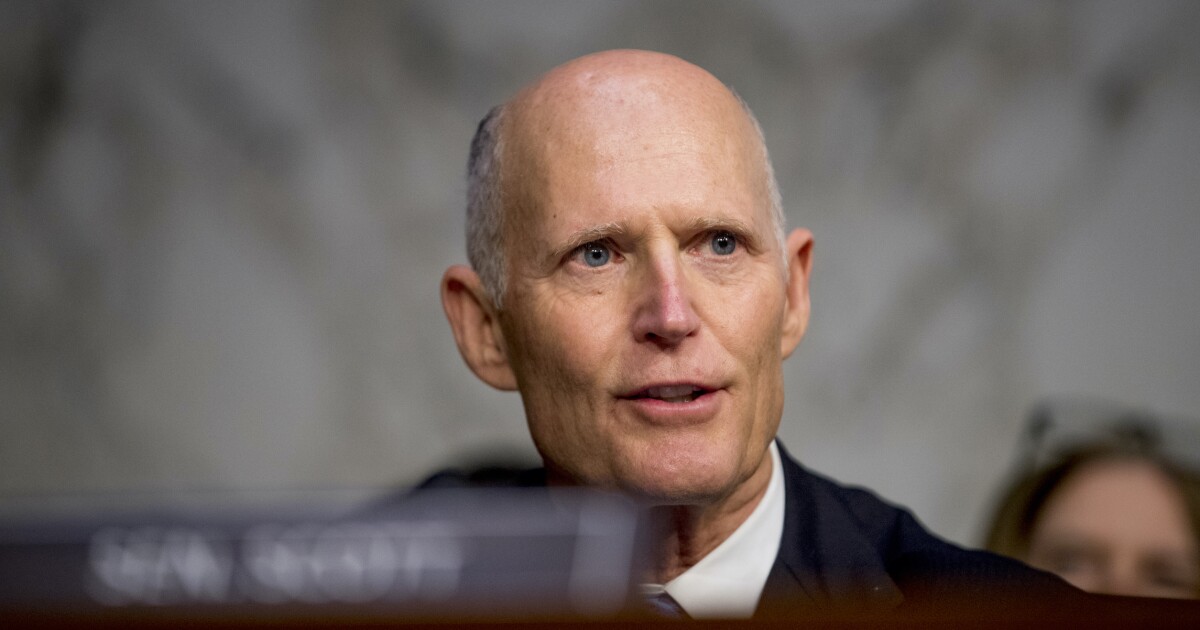

EXCLUSIVE — As distrust grows between the United States and China amid festering tensions, some GOP lawmakers are calling on the Biden administration to sever research ties between the two nations in order to protect domestic interests.
Sen. Rick Scott (R-FL) pressed Secretary of State Antony Blinken in a letter sent on Thursday to pull out of a 40-year agreement that has allowed the two countries to collaborate on science and technology innovations and is set to expire later this month. The plea comes as several lawmakers have grown skeptical of China’s ability to overpower the U.S. in national security and military matters.
ROMNEY DOMINATES 2024 SENATE FIELD AS HE WEIGHS REELECTION RUN IN UTAH: POLL
“Communist China has chosen to be America’s enemy,” Scott wrote in the letter, which was frist obtained by the Washington Examiner. “The brutal regime of Xi Jinping has made clear, through increased military aggression, data and intellectual property theft and the issuance of false economic data, that it has no interest in maintaining a productive working relationship with the United States.”
The U.S.-China Science and Technology Agreement was first signed in 1979 and has become one of the most foundational agreements between the two global leaders for more than four decades. Since then, China has established itself as a leading nation of scientific discovery, making it a crucial research partner for the U.S. in areas such as agriculture, energy, space,
health, environment, earth science, engineering, and other areas.
However, relations between the two countries have weakened over the last several years, especially after the COVID-19 pandemic emerged in China and government leaders were reluctant to provide information or investigative findings on the disease’s origins.
Scott pointed to a stipulation in the STA that dictates members of the agreement must “provide access to relevant geographic areas, institutions, data and materials” as a means of transparency. Chinese officials have failed to do so, he argued, putting the entire relationship at risk.
“Communist China failed to follow the agreement, and rejected all efforts related to transparency or sharing of materials from the Wuhan Institute of Virology (WIV) to the World Health Organization and the international community during the COVID-19 investigation,” Scott wrote.
The Florida senator also cited instances in which the Chinese government has reportedly stolen intellectual property through pressure campaigns pushing U.S. companies to partner with Chinese businesses, then using that partnership to steal information. Scott pointed to reports that showed Chinese officials stealing seeds from U.S. farms as part of an elaborate effort to gain access to their genetically modified technology.
Scott also cited human rights concerns as a reason to cut ties with Chinese officials, arguing it’s “unthinkable” for the U.S. government to collaborate with a country that is “undermining our promotion of human rights and human liberty.”
“It becomes evident that cooperation with a nation so contrary to American values is untenable,” Scott wrote. “Instances of intellectual property theft, economic coercion, and human rights abuses underscore the need for the United States to reevaluate its engagement with China and prioritize collaborations that align with our values and long-term interests.”
CLICK HERE TO READ MORE FROM THE WASHINGTON EXAMINER
Despite the growing call to sever research ties with China, some scientists have warned doing so would risk U.S. progress in key areas such as biotechnology, clean energy, and telecommunications. The U.S. depends far more heavily on China in key areas, according to recent research obtained by the Wall Street Journal, putting the country at a disadvantage if it chooses to cut ties altogether.
The STA is set to expire on Aug. 27 and it remains unclear whether the State Department intends to renew the agreement for another five years.





